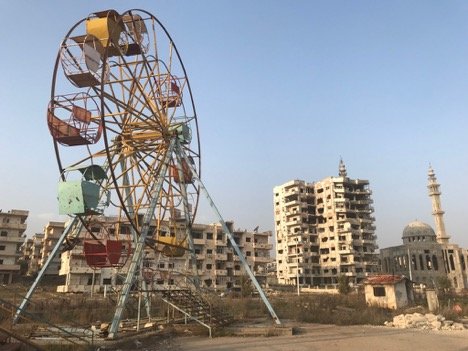Technology and Innovation in Mine Risk Education
At Artios we move and adapt with the constantly changing world by embracing technology into our work to benefit people in need. Because of this, in 2017 we were invited to join a consortium to provide innovation, social entrepreneurship and pioneering humanitarian interventions alongside the Cranfield School of Management and LSN mCubed.
The challenge
The disruption and danger that improvised explosive device contamination causes in Fragile and Conflict Affected States today is unprecedented. The UN has described the problem as complex, substantial and exceeding existing response capacities. New solutions are desperately needed to ensure the safety of people living amongst of such dangers.
Our role
The consortium will scope transformational innovation in the field of augmented training focusing on explosive hazard educational activities. Initial research is considering virtual or augmented reality devices, as a low cost means of converting smart phones into enhanced training simulators.
We will provide technical expertise in systems design and Humanitarian Mine Action in the research and analysis phase before delivering field-testing of the prototypes in conflict affected areas. Artios will deliver a post implementation plan to ensure that people living in these dangerous areas are able to support themselves in the future with less reliance on international support.
The result
Providing enhanced explosive hazard education and training will ensure the protection and survival of civilian groups who are currently left vulnerable by the lack of capacity. The project is in the research phase and a funding application for field-testing has been submitted to the Humanitarian Innovation Fund. The results and learning will be published in near real time via a blog series, the first of which can be found here: http://www.elrha.org/hif-blog/ebola-response-insights-high-threat-environments/

